EUROPEAN BANKS, MERCHANTS AND NEW PAYMENTS PROVIDERS HAVE BEEN HARD AT WORK TO MEET THE 14TH OF SEPTEMBER 2019 DEADLINE IMPOSED BY THE UPDATED PAYMENT SERVICES DIRECTIVE (PSD2). THE REVISED AND UPDATED DIRECTIVE CREATES A LEGAL FRAMEWORK FOR SIMPLER, FASTER, AND MORE SECURE PAYMENTS IN THE EU. WITH IT, THE WORLD OF ONLINE PAYMENTS IS ABOUT TO UNDERGO MAJOR CHANGES, LEADING THE WAY TOWARDS OPEN BANKING. BUT WHAT DOES THAT MEAN IN PRACTICE? WE MET WITH MAJOR PLAYERS FROM THE INDUSTRY TO LEARN MORE ABOUT THE IMPACT ON THEIR BUSINESS AND THE FUTURE OF PAYMENTS.
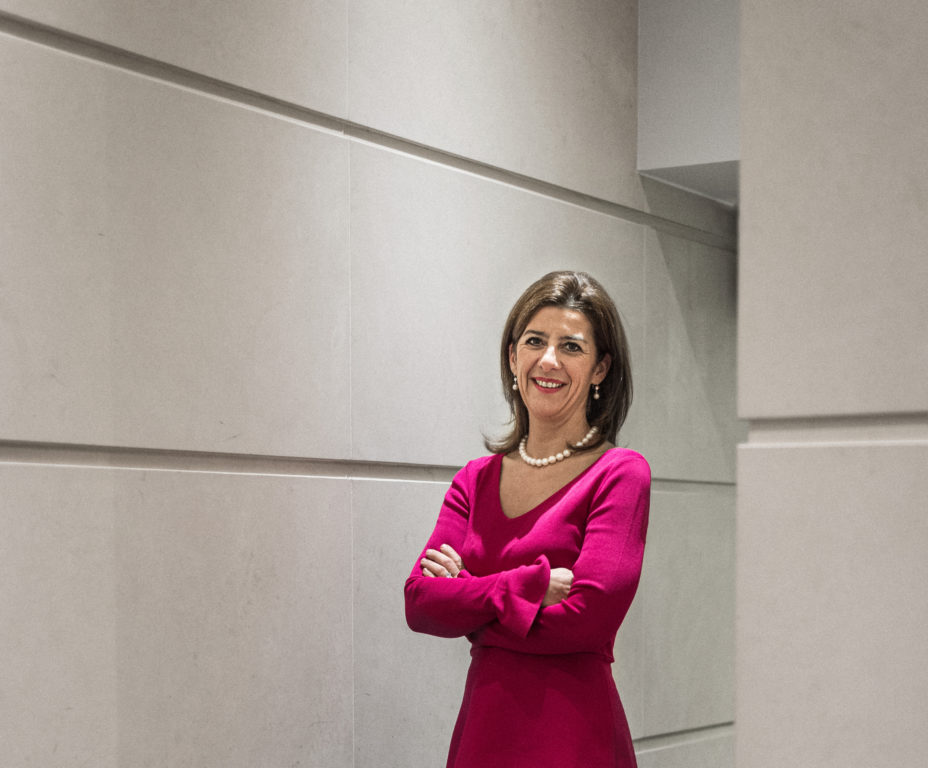
Nadia Manzari

The banking sector is one of the last sectors to be impacted by the digitalisation of our daily lives because it is highly regulated, but PSD2 is aimed at getting banks there.
“PSD2 has the potential to change and significantly improve the banking and financial services experience. It is a tremendous opportunity for banks to modernise their products and a catalyst for them to get on the digitalisation train. Ultimately, it sets the scene for a completely new business model,” says Nadia Manzari, Partner at Schiltz & Schiltz, who has been active in the Luxembourg finance industry for twenty years.
The drivers behind the Directive are clear: innovation, pan-European competition and consumer protection.
PSD2 is the revised version of PSD1, implemented in Luxembourg by the law of 10 November 2009 on payment services, as the first step towards a more integrated and efficient European payments market by opening up the payments industry to non-banks. Since then, the fast-paced evolution of the market spearheaded by
Fintech companies required updates to the Directive to regulate these new players.
“Since PSD1, I’ve seen a lot of new providers and a variety of business models coming up, including crypto exchanges and digital currency service providers, and this has all been favoured by this new trend of having new actors coming in. PSD2 is the next step to a digitised financial market.The banking sector is one of the last sectors to be impacted by the digitalisation of our daily lives because it is highly regulated, but PSD2 is aimed at get- ting banks there,” she adds.
Above all, Manzari sees the new Directive as an opportunity to give consumers more and better choices when it comes to retail payments.
“PSD2 regulates all the active members of the payments value chain, which in turn affects competition and increases the variety of payment services available, all for the benefit of the end consumer.”
WHAT DOES IT MEAN IN PRACTICE?
At its core, PSD2 will impact two things: the flow of payments and how customers access their finances. Simply put, banking as we know it will soon be radically transformed. Banks or other account-holding PSPs are now required to grant third-party providers (TPPs) secure access to their retail and corporate customers’ accounts and data via APIs, as long as the account holder provides consent.
“PSD2 enables customers to directly use their bank accounts in a variety of situations. Clients of European banks have the opportunity to grant access to their bank information to third-party providers, removing the need to interact with the bank directly. Payment initiation service providers offer their users a possibility to shop online even if they do not possess payment cards,” explains Manzari.
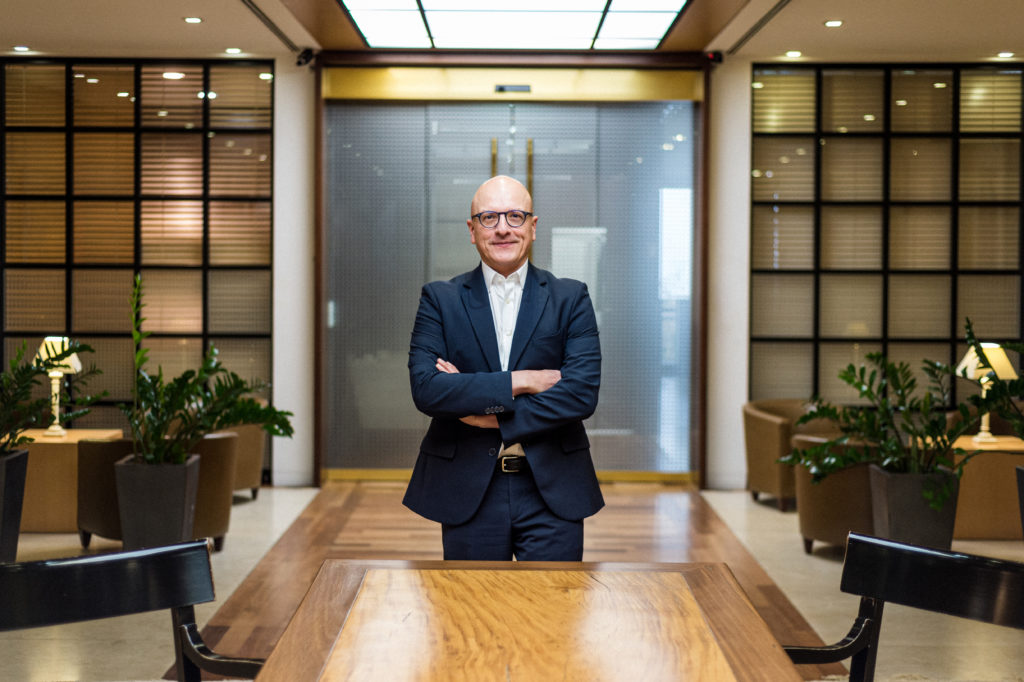
David Marongiu

Like it or not, Open Banking is the future of banking. It will accelerate our acculturation to “digital” and will be another learning tool for private banks.
These new kids on the block will be able to connect to customer accounts and provide payments or information aggregation services. In addition, every customer will benefit from safer and more reliable payment services, thanks to the implementation of new enhanced security measures, such as Strong Customer Authentication (SCA).
“For banks and non-banks alike, this means thinking not only of transactions and liquidity management but looking broadly at customer journeys.”
BANKS AS TECHNOLOGY INNOVATORS
“As banks, we are made to expose our APIs which will allow third parties to see payments history, balances from accounts and to execute payments.While opening APIs to a further extent is not mandatory, banks willing to provide greater access will be in a better position to implement new regulations and reap more benefits of PSD2 compliance,” explains David Marongiu, Chief Operating Officer at Indosuez Wealth Management Europe.
Indosuez WealthManagement is the global wealth management brand of Crédit Agricole group. With €130 billion in assets under management as at June 2019, the group is one of the global leaders in wealth management.
At its core, PSD2 is typically designed towards the retail banks. However, private and corporate banks fall under the scope of the Directive for their payment accounts.
“At this stage PSD2 doesn’t include securities accounts.While this seems to be a natural extension of the various payment services offered by retail banks, it is a major change for private banks who often provide payments as an ancillary service. Therefore, PSD2 will probably have a slower adoption rate among private banks. I think the question most pure players Private banks are asking themselves is whether our clients will use these services and give consent to TPP to access their wealth management accounts.”
Marongiu sees PSD2 as an opportunity for the banking sector to compete as technology innovators.
“Like it or not, Open Banking is the future of banking. It will accelerate our acculturation to “digital” and will be another learning tool for private banks.The key is to capture these opportunities quickly and effectively. Technological development will require us to stream- line our services and upgrade client experience in order to provide them with added-value services. Fortunately, we have an historic advantage – a deep knowledge of financial products, a large customer base and a support- ing balance sheet. Our expertise paired with innovation is what’s needed to stay ahead of the game. Slow adopters like Private banks should have a clear strategy and make sure they are not left too far behind, even if they surely do not need to be the trendsetters.”
To fully benefit from digitalisation, Marongiu highlights the importance of building partnerships with Fintechs to deliver the best results for customers.
“Our integrated core banking system (Azqore) has APIs that allow for the customisation of digital solutions.Therefore, we decided to look for a specialised provider to accelerate our time to market.”
THE RISE OF ENABLERS IN OPEN BANKING
PSD2 and Open Banking has sparked the rise of PSFs (Professionals of the Financial Sector) acting as enablers for banks in providing the necessary PSD2 compliance-related services, such as strong customer authentication, secure communication and APIs as a gateway for receiving and granting access to payment accounts for third-party providers. These providers aim at going beyond PSD2 and delivering services helping banks for other challenges such as digital onboarding, AML, KYC and any type of new services ensuring a better user experience.
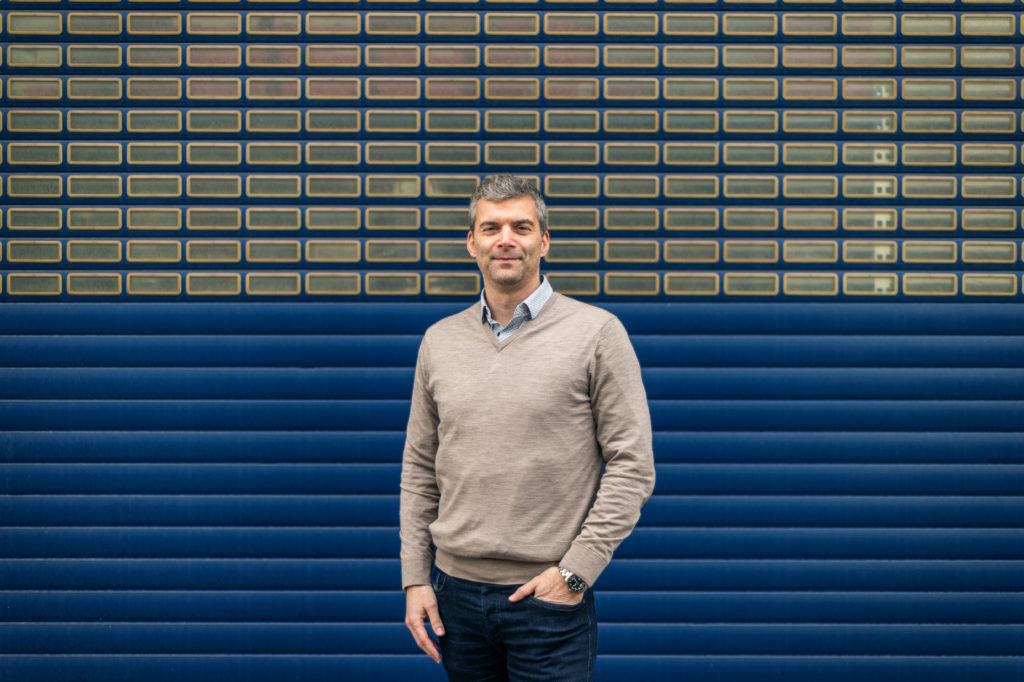
Jonathan Prince

For banks, the challenge is seizing opportunities arising from digitalisation but also remaining cost efficient and coping with the increase of regulations.
“For banks, the challenge is seizing opportunities arising from digitalisation but also remaining cost efficient and coping with the increase of regulations. We consider this as a key asset as we are at the crossroads between compliance and technology,” he adds.
The company’s “PSD2 for Banks” application enables any financial institutions holding payment accounts that are accessible via online channels to meet full PSD2 regulatory requirements via a single connection to their core systems.
“We give financial institutions the power to cherry-pick the services and APIs they need through our Trusted Fintech Platform in order to easily access third-party providers’ best in-class products and services. We work on providing each bank with its own white-labelled PSD2 Access to Account portal. Institutions are not buying the API and implementing them on their own. We provide the software as a service so they can rely on us to fully operate the solution. PSD2 also requires them to maintain and make sure that the API is still up-to-date. We do that for them.”
Finologee is the operator of several critical infrastructure platforms that provide Fintech and payment APIs to thousands of institutions all over Europe since 2006. These systems handle hundreds of millions of transactions a year using a highly secure infrastructure. More specifically, its ’PSD2 for Banks’ product currently serves 32 financial institutions. It is the preferred choice of private and commercial banks, specifically meeting their low exposure, high quality and customisation expectations, but also e-money and payment institutions with their high-performance needs. Besides PSD2 APIs, the company’s Trusted Platform offers a catalogue of compliant building blocks for KYC, e-signature, communications and storage.

From a technical perspective, all the banks have to fill the same checkboxes, so why not mutualise the parts that can be mutualised?
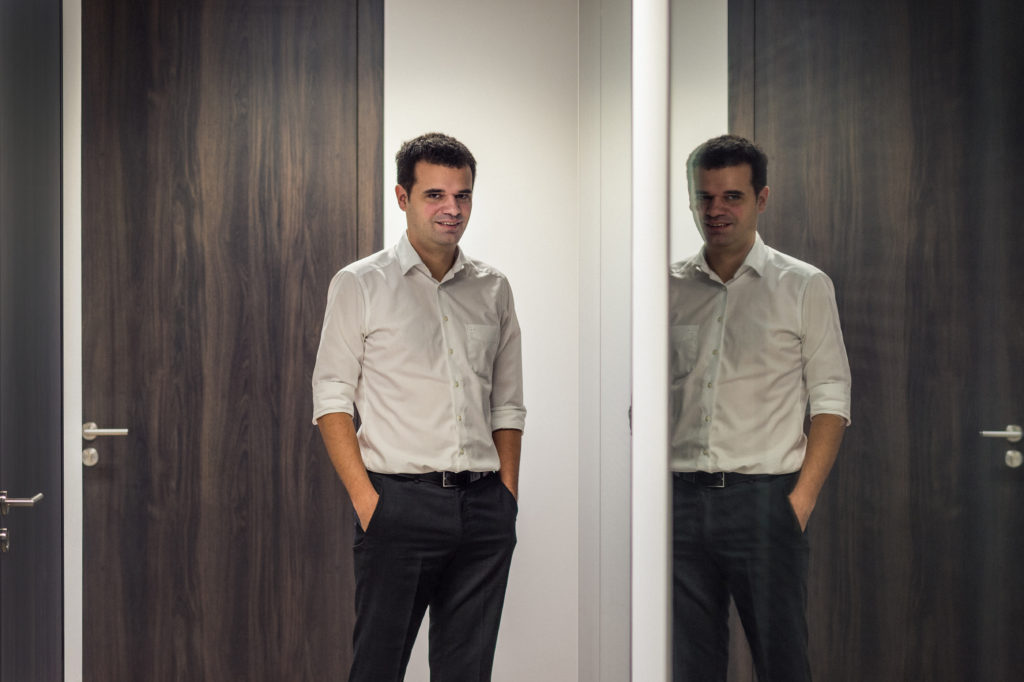
Jacques Pütz
INNOVATION IN MUTUALISATION
“Open Banking is seen as a true game-changer in the banking industry as it redistributes the roles and forces traditional actors to get rid of silos. Financial innovation will come from collaboration with Fintechs. As a result, banks will increasingly become IT companies with huge banking knowledge. It is a real culture change,”highlights Jacques Pütz, CEO of LUXHUB, a common Open Banking API platform founded in 2018 by four retail Luxembourg banks, with the aim of leveraging the challenges and opportunities of PSD2 and beyond. As of today, LUXHUB ensures PSD2 compliance, cybersecurity and stability of more than 2.5 million payment accounts through its centralised API platform.
“We are a company founded by banks so we’re really aware of their challenges and needs.We want to create a new platform ecosystem for the future of banking and put Luxembourg on the map of open banking,” adds the CEO of LUXHUB, ranked last June as the 2nd largest European Open Banking Hub.
Pütz sees great benefits in the mutualisation of services.
“From a technical perspective, all the banks have to fill the same checkboxes, so why not mutualise the parts that can be mutualised? That’s our main aim: mutualise efforts with the impacted players and respond together to the mandatory legal obligations, in order to significantly decrease costs and act faster. When a Fintech connects to LUXHUB, the APIs will be available for all the different banks that are our customers. In addition, when you’re talking about collaboration and APIs, the security aspect is important, so we are mutualising for a security benefit to guarantee a higher security standard for all our customers.”
The ambitions of LUXHUB far exceed the sole Luxembourg market. As of today, 36 European financial institutions from 10 different countries onboarded on its Open Banking platform.
ACCOUNT AGGREGATION FOR A BETTER USER EXPERIENCE
PSD2 provides the opportunity for users to consolidate all of their bank accounts in a single interface via account aggregation, no matter which bank they are held with.
“PSD2 has played the role of innovation catalyst in the banking industry and end-customers are eager to access the new products and services emerging from the Fintech world.
Asset aggregators means that you’re going to shift from a limited banking product to a set of additional services.The banking part might even become a sort of commodity. It is not so much the bank that is key but the banking experience,” says Jonathan Prince.
With PSD2, retail banks progress towards an extended ecosystem centered on the ‘Everyday Bank’, meaning that banks go beyond their native products and play a deeper role in the digital and commercial lives of their customers. Beyond the directive, Open Banking could lead to the rise of platform models for banking services where banks act as market intermediaries connecting customers, manufacturers and distributors.
“To us, PSD2 is a trigger driving banks into the era of Open Banking. Our role now is to accompany all the actors of the sector in their digital journey. The bank of tomorrow will undoubtedly take more the shape of an assemblage of diversity of micro-services carried by a wide variety of actors.This is the image of Lego, built from different blocks,” highlights Jacques Pütz.
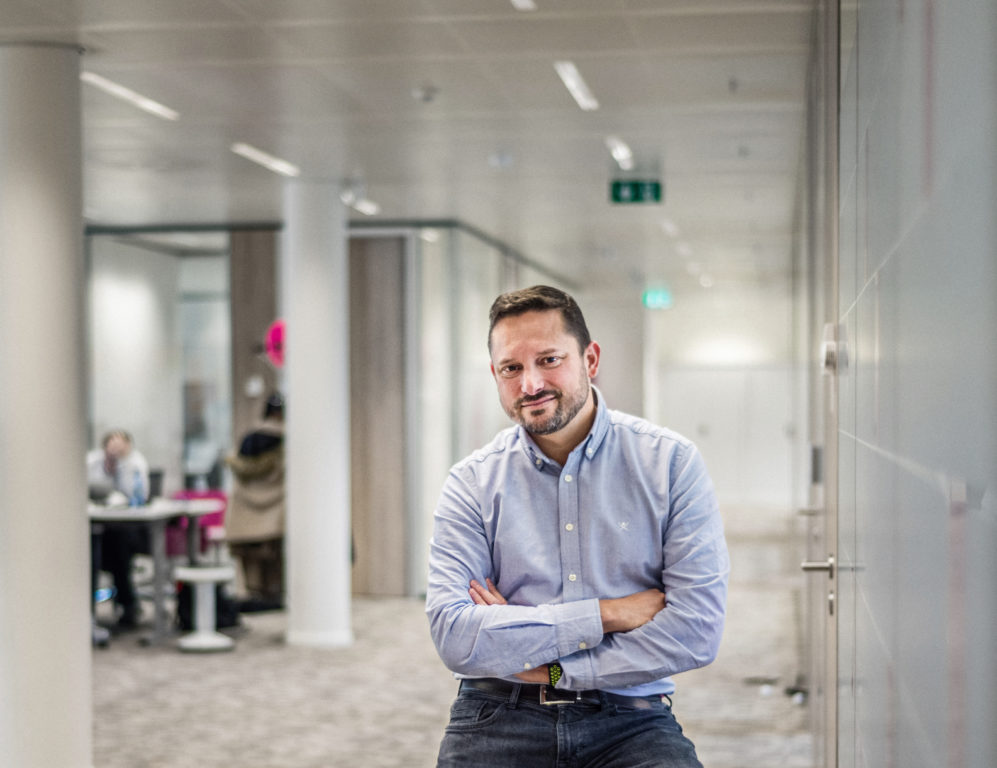
Michael Pechner

We believe that every person owning a bank account and a smartphone is entitled to be part of the digital journey.
MOBILE PAYMENTS MADE EASY FOR EVERYONE
The Luxembourg-based mobile payments company Payconiq is the perfect example of the benefits arising from the collaboration between banks and Fintechs. Born in Amsterdam as a strategic initiative of ING’s incubator in 2014, its establishment coincides with the talks for a revised PSD, what we know today as PSD2.
“At the time, European banks were starting to understand that their competitive position was about to change. Some of them, ING included, were looking for a new edge to keep them on top of the game. Open Banking has clearly helped us making sure that banks remain relevant in the digital mobile payments space,” says Michael Pechner, COO of Payconiq International.
In 2017, it acquired Luxembourg’s mo- bile payments Digicash to expand its foot- print across Benelux. Today, it operates as a fully independent Fintech with Head- quarters in Luxembourg and the support of 12 European banks across three countries and aims to lead the transformation of the payment industry in Europe.
“At Payconiq, we believe that every person owning a bank account and a smartphone is entitled to be part of the digital journey – no need of a credit card for that.We want to provide a seamless payment experience to the consumer. We’re actually using banks’ secure infrastructure to provide everyone in Europe with a simple, mobile solution for payments. Our partner banks ensure users of a secure registration process and merchants of a trust- worthy re-seller,” he adds.
The company has built a pan-European and multi-channel ecosystem focusing on consumers, merchants, and banks.
“We offer banks an ecosystem through an open-API approach and flexible micro-services. To merchants, we offer a scalable, secure plug and play payments platform and an independent hardware for simple onboarding, integration, and app development. They reduce check-out times and pay smaller fees. Last but not least, consumers benefit from quick and secure payments through their smartphone which can be used for omnichannel payments: in-store, online and between friends.They don’t have to go through the difficulties of either getting cash out, logging in to their e-banking or going to a branch.They only need a bank account and a smartphone.”
In 2019, Payconiq was the first payment company to receive a new Payment Initiation Service authorisation in Luxembourg under PSD2, allowing it to act either as a technical service provider or payment initiation provider. For Pechner, we haven’t seen the end of all the opportunities that PSD2 can provide.
“We are at the beginning of that journey. PSD2 provides the opportunity of harmonisation in a fragmented European market. Mobile payments are just one step towards a frictionless payment. People increasingly want a frictionless experience.”

